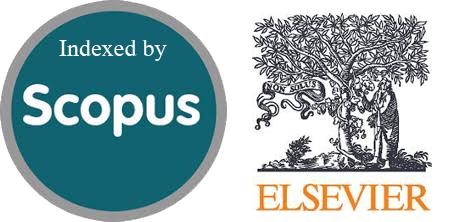Effect of Bezafibrate and Ginkgo biloba Extract Combination on Doxorubicin-Induced Cardiotoxicity in Rats
DOI:
https://doi.org/10.54133/ajms.v7i2.1244Keywords:
Bezafibrate, Cardiotoxicity, Cardiac injury markers, Doxorubicin, GKB extractAbstract
Objectives: This study aimed to evaluate the possible synergistic effect of bezafibrate and ginkgo biloba (GKB) extract on cardiotoxicity induced by doxorubicin. Methods: Thirty rats were allocated into 5 groups: The negative control group was treated daily with 1 ml of distilled water orally by gavage tube; the positive control received doxorubicin 3.7 mg/kg on day 11 for 3 days intraperitoneally; the bezafibrate group received 100mg/kg orally by gavage tube; the GKB group received 60mg/kg orally by gavage tube; and the combination of bezafibrate and GKB group. All the groups received the doxorubicin protocol, with an exception for the negative control. The treatment continued for 14 days. On day 14, blood samples were taken for the measurement of serum levels of troponin, natriuretic peptide, creatine phosphokinase (CPK), IL-6, and total lipid profile. The atherogenic index, cardiac risk, and LDL/HDL ratios were calculated. Cardiac tissues were sent for histopathological analysis. Results: Both bezafibrate and GKB exhibited attenuation of troponin, natriuretic peptides, CPK, IL-6, TG, cardiac risk ratio, and atherogenic index, as well as an increase in HDL levels. However, the combination group showed the greatest effect compared to the positive control group. The histopathological findings supported the biochemical outcomes. Conclusions: Combining GKB extract and bezafibrate protects against cardiac injury by restoring injury markers and IL-6, as well as improving the lipid profile, cardiac risk ratio, and atherogenic index.
Downloads
References
Henriksen PA. Anthracycline cardiotoxicity: an update on mechanisms, monitoring and prevention. Heart. 2018;104(12):971-977. doi: 10.1136/heartjnl-2017-312103. DOI: https://doi.org/10.1136/heartjnl-2017-312103
Christidi E, Brunham LR. Regulated cell death pathways in doxorubicin-induced cardiotoxicity. Cell Death Dis. 2021;12(4):339. doi: 10.1038/s41419-021-03614-x. DOI: https://doi.org/10.1038/s41419-021-03614-x
McGowan JV, Chung R, Maulik A, Piotrowska I, Walker JM, Yellon DM. Anthracycline chemotherapy and cardiotoxicity. Cardiovasc Drugs Ther. 2017;31(1):63-75. doi: 10.1007/s10557-016-6711-0. DOI: https://doi.org/10.1007/s10557-016-6711-0
Aziz TA. Cardioprotective effect of quercetin and sitagliptin in doxorubicin-induced cardiac toxicity in rats. Cancer Manag Res. 2021;13:2349-2357. doi: 10.2147/CMAR.S300495. DOI: https://doi.org/10.2147/CMAR.S300495
Hamaamin KS, Aziz TA. Doxorubicin-induced cardiotoxicity: Mechanisms and management. Al-Rafidain J Med Sci. 2022;3:87-97. doi: 10.54133/ajms.v3i.90. DOI: https://doi.org/10.54133/ajms.v3i.90
Ghigo A, Li M, Hirsch E. New signal transduction paradigms in anthracycline-induced cardiotoxicity. Biochim Biophys Acta Mol Cell Res. 2016;1863(7):1916-1925. doi: 10.1016/j.bbamcr.2016.01.021 DOI: https://doi.org/10.1016/j.bbamcr.2016.01.021
dos Santos DS, Goldenberg RC. Doxorubicin-induced cardiotoxicity: From mechanisms to development of efficient therapy. In: Tan W, (Ed.), Cardiotoxicity. InTechOpen; 2018. doi:10.5772/intechopen.79588. DOI: https://doi.org/10.5772/intechopen.79588
Ahmed ZA, Abtar AN, Othman HH, Aziz TA. Effects of quercetin, sitagliptin alone or in combination in testicular toxicity induced by doxorubicin in rats. Drug Des Devel Ther. 2019;13:3321. doi: 10.2147/DDDT.S222127 DOI: https://doi.org/10.2147/DDDT.S222127
Kimura R, Takahashi N, Murota K, et al. Activation of peroxisome proliferator-activated receptor-α (PPARα) suppresses postprandial lipidemia through fatty acid oxidation in enterocytes. Biochem Biophys Res Commun. 2011;410(1). doi:10.1016/j.bbrc.2011.05.057 DOI: https://doi.org/10.1016/j.bbrc.2011.05.057
da Rosa-Junior NT, Parmeggiani B, Glänzel NM, de Moura Alvorcem L, Frusciante MR, Dutra Filho CS, et al. In vivo evidence that bezafibrate prevents oxidative stress and mitochondrial dysfunction caused by 3-methylglutaric acid in rat liver. Biochimie. 2020;171-172:187-196. doi: 10.1016/j.biochi.2020.03.007. DOI: https://doi.org/10.1016/j.biochi.2020.03.007
Anwer T, Sharma M, Pillai KK, Haque SE, Alam MM, Zaman MS. Protective effect of bezafibrate on streptozotocin-induced oxidative stress and toxicity in rats. Toxicology. 2007;229(1-2). doi: 10.1016/j.tox.2006.10.016. DOI: https://doi.org/10.1016/j.tox.2006.10.016
Zhong X, Xiu L, Wei G, Pan T, Liu Y, Su L, et al. Bezafibrate prevents palmitate-induced apoptosis in osteoblastic MC3T3-E1 cells through the NF-κB signaling pathway. Int J Mol Med. 2011;28(4):535-542. doi: 10.3892/ijmm.2011.722. DOI: https://doi.org/10.3892/ijmm.2011.722
Qiao X, Gao YY, Zheng LX, Ding XJ, Xu LW, Hu JJ, et al. Targeting ROS-AMPK pathway by multiaction Platinum(IV) prodrugs containing hypolipidemic drug bezafibrate. Eur J Med Chem. 2021;223:113730. doi: 10.1016/j.ejmech.2021.113730. DOI: https://doi.org/10.1016/j.ejmech.2021.113730
Landreth G, Jiang Q, Mandrekar S, Heneka M. PPARγ agonists as therapeutics for the treatment of Alzheimer’s disease. Neurotherapeutics. 2008;5(3):481. doi: 10.1016/J.NURT.2008.05.003. DOI: https://doi.org/10.1016/j.nurt.2008.05.003
Naik SR, Pilgaonkar VW, Panda VS. Neuropharmacological evaluation of Ginkgo biloba phytosomes in rodents. Phytother Res. 2006;20(10). doi: 10.1002/ptr.1973. DOI: https://doi.org/10.1002/ptr.1973
Mesquita TRR, de Jesus ICG, Dos Santos JF, de Almeida GKM, de Vasconcelos CML, Guatimosim S, et al. Cardioprotective action of Ginkgo biloba extract against sustained β-adrenergic stimulation occurs via activation of M2/NO pathway. Front Pharmacol. 2017;8:220. doi: 10.3389/fphar.2017.00220. DOI: https://doi.org/10.3389/fphar.2017.00220
Zhou XL, Yang M, Xue BG, He HT, Zhang CM, Miao-Miao Liu MM, et al. Anti-inflammatory action of Ginkgo biloba leaf polysaccharide via TLR4/NF-κb signaling suppression. Biomed Res (India). 2014;25(4):449-454.
Aziz TA, Hussain SA, Mahwi TO, Ahmed ZA, Rahman HS, Rasedee A. The efficacy and safety of Ginkgo biloba extract as an adjuvant in type 2 diabetes mellitus patients ineffectively managed with metformin: A double-blind, randomized, placebo-controlled trial. Drug Des Devel Ther. 2018;12(4):735-742. doi: 10.2147/DDDT.S157113. DOI: https://doi.org/10.2147/DDDT.S157113
Hussain SA, Aziz TA, Mahwi TO, Ahmed ZA. Gingko biloba extract improves the lipid profile, inflammatory markers, leptin level and the antioxidant status of T2DM patients poorly responding to metformin: A double- blind, randomized, placebo-controlled trial. Braz J Pharm Sci. 2022;58:e19516. doi: 10.1590/S2175-97902022E19516. DOI: https://doi.org/10.1590/s2175-97902022e19516
He YT, Xing SS, Gao L, Wang J, Xing QC, Zhang W. Ginkgo biloba attenuates oxidative DNA damage of human umbilical vein endothelial cells induced by intermittent high glucose. Pharmazie. 2014;69(3):203-207. doi: 10.1691/ph.2014.3819.
Salouege I, Ben Ali R, Ben Saïd D, Elkadri N, Kourda N, Lakhal M, et al. Means of evaluation and protection from doxorubicin-induced cardiotoxicity and hepatotoxicity in rats. J Cancer Res Ther. 2014;10(2):274-278. doi: 10.4103/0973-1482.136557. DOI: https://doi.org/10.4103/0973-1482.136557
Saha L, Bhatia A, Chakrabarti A. Gastroprotective effect of bezafibrate, a peroxisome proliferator activated receptor α agonist and its mechanism in a rat model of aspirin-induced gastric ulcer. Adv Digest Med. 2016;3(3):101-110. doi: 10.1016/J.AIDM.2016.04.001. DOI: https://doi.org/10.1016/j.aidm.2016.04.001
Mustafa A, El-Medany A, Hagar HH, El-Medany G. Ginkgo biloba attenuates mucosal damage in a rat model of ulcerative colitis. Pharmacol Res. 2006;53(4):324-330. doi: 10.1016/J.PHRS.2005.12.010. DOI: https://doi.org/10.1016/j.phrs.2005.12.010
Kelleni MT, Abdelbasset M. Drug Induced Cardiotoxicity: Mechanism, Prevention and Management. In: Tan W, (Ed.), Cardiotoxicity. Published online 2018. doi: 10.5772/intechopen.79611. DOI: https://doi.org/10.5772/intechopen.79611
Lipshultz SE, Karnik R, Sambatakos P, Franco VI, Ross SW, Miller TL. Anthracycline-related cardiotoxicity in childhood cancer survivors. Curr Opin Cardiol. 2014;29(1):103-112. doi: 10.1097/HCO.0000000000000034. DOI: https://doi.org/10.1097/HCO.0000000000000034
Lapp HS, Freigang M, Friese J, Bernsen S, Tüngler V, von der Hagen M, et al. Troponin T is elevated in a relevant proportion of patients with 5q-associated spinal muscular atrophy. Sci Rep. 2024;14(1):6634. doi: 10.1038/s41598-024-57185-w. DOI: https://doi.org/10.1038/s41598-024-57185-w
Nishikimi T, Kuwahara K, Nakao K. Current biochemistry, molecular biology, and clinical relevance of natriuretic peptides. J Cardiol. 2011;57(2):131-140. doi: 10.1016/J.JJCC.2011.01.002 DOI: https://doi.org/10.1016/j.jjcc.2011.01.002
Sowards KJ, Mukherjee K, Norris PR, Shintani A, Ware LB, Roberts LJ, et al. Elevated serum creatine phosphokinase is associated with mortality and inotropic requirement in critically injured adults. Injury. 2014;45(12):2096-2100. doi: 10.1016/j.injury.2014.09.009. DOI: https://doi.org/10.1016/j.injury.2014.09.009
Teramoto T, Shirai K, Daida H, Yamada N. Effects of bezafibrate on lipid and glucose metabolism in dyslipidemic patients with diabetes: The J-BENEFIT study. Cardiovasc Diabetol. 2012;11(1):1-10. doi: 10.1186/1475-2840-11-29/TABLES/7. DOI: https://doi.org/10.1186/1475-2840-11-29
Keech A, Simes RJ, Barter P, Best J, Scott R, Taskinen MR, et al. Effects of long-term fenofibrate therapy on cardiovascular events in 9795 people with type 2 diabetes mellitus (the FIELD study): randomized controlled trial. Lancet. 2005;366(9500):1849-1861. doi: 10.1016/S0140-6736(05)67667-2. DOI: https://doi.org/10.1016/S0140-6736(05)67667-2
Jun M, Foote C, Lv J, Neal B, Patel A, Nicholls SJ, et al. Effects of fibrates on cardiovascular outcomes: a systematic review and meta-analysis. Lancet. 2010;375(9729):1875-1884. doi: 10.1016/S0140-6736(10)60656-3. DOI: https://doi.org/10.1016/S0140-6736(10)60656-3
Mahady GB. Ginkgo biloba for the prevention and treatment of cardiovascular disease: a review of the literature. J Cardiovasc Nurs. 2002;16(4):21-32. doi:10.1097/00005082-200207000-00004. DOI: https://doi.org/10.1097/00005082-200207000-00004
Ren DC, Du GH, Zhang JT. Protective effect of ginkgo biloba extract on endothelial cell against damage induced by oxidative stress. J Cardiovasc Pharmacol. 2002;40(6):809-814. Doi: 10.1097/00005344-200212000-00001. DOI: https://doi.org/10.1097/00005344-200212000-00001
Arbel Y, Klempfner R, Erez A, Goldenberg I, Benzekry S, Shlomo N, et al. Bezafibrate for the treatment of dyslipidemia in patients with coronary artery disease: 20-year mortality follow-up of the BIP randomized control trial. Cardiovasc Diabetol. 2016;15:11. doi: 10.1186/s12933-016-0332-6. DOI: https://doi.org/10.1186/s12933-016-0332-6
Krysiak R, Gdula-Dymek A, Okopien B. The effect of bezafibrate and omega-3 fatty acids on lymphocyte cytokine release and systemic inflammation in patients with isolated hypertriglyceridemia. Eur J Clin Pharmacol. 2011;67(11):1109. doi:10.1007/S00228-011-1063-Y. DOI: https://doi.org/10.1007/s00228-011-1063-y
Haybar H, Goudarzi M, Mehrzadi S, Aminzadeh A, Khodayar MJ, Kalantar M, et al. Effect of gemfibrozil on cardiotoxicity induced by doxorubicin in male experimental rats. Biomed Pharmacother. 2019;109:530-535. doi: 10.1016/j.biopha.2018.10.101. DOI: https://doi.org/10.1016/j.biopha.2018.10.101
Chan PC, Xia Q, Fu PP. Ginkgo biloba leave extract: biological, medicinal, and toxicological effects. J Environ Sci Health C Environ Carcinog Ecotoxicol Rev. 2007;25(3):211-244. doi: 10.1080/10590500701569414. DOI: https://doi.org/10.1080/10590500701569414
Tan MS, Yu JT, Tan CC, Wang HF, Meng XF, Wang C, et al. Efficacy and adverse effects of ginkgo biloba for cognitive impairment and dementia: a systematic review and meta-analysis. J Alzheimers Dis. 2015;43(2):589-603. doi: 10.3233/JAD-140837. DOI: https://doi.org/10.3233/JAD-140837
Mohamed NES, Abd El-Moneim AE. Ginkgo biloba extract alleviates oxidative stress and some neurotransmitters changes induced by aluminum chloride in rats. Nutrition. 2017;35:93-99. doi: 10.1016/J.NUT.2016.10.012. DOI: https://doi.org/10.1016/j.nut.2016.10.012
Mahadevan S, Park Y. Multifaceted therapeutic benefits of Ginkgo biloba L.: Chemistry, efficacy, safety, and uses. J Food Sci. 2008;73(1):R14-19. doi: 10.1111/j.1750-3841.2007.00597.x. DOI: https://doi.org/10.1111/j.1750-3841.2007.00597.x
Badem S, Ugurlucan M, El H, Sahin M, Uysal M, Sayin OA, et al. Effects of Ginkgo biloba extract on spinal cord ischemia-reperfusion injury in rats. Ann Vasc Surg. 2014;28(5):1296-1305. doi: 10.1016/j.avsg.2014.02.020. DOI: https://doi.org/10.1016/j.avsg.2014.02.020
Akiba S, Chiba M, Mukaida Y, Tamura A, Sato T. The leaf extract of Ginkgo Biloba L. suppresses oxidized LDL-stimulated fibronectin production through an antioxidant action in rat mesangial cells. Br J Pharmacol. 2004;142(3):419-424. doi: 10.1038/sj.bjp.0705805. DOI: https://doi.org/10.1038/sj.bjp.0705805
Shaito A, Thuan DTB, Phu HT, Nguyen THD, Hasan H, Halabi S, et al. Herbal medicine for cardiovascular diseases: Efficacy, mechanisms, and safety. Front Pharmacol. 2020;11:422. doi: 10.3389/fphar.2020.00422. DOI: https://doi.org/10.3389/fphar.2020.00422
Liu TJ, Yeh YC, Ting CT, Lee WL, Wang LC, Lee HW, et al. Ginkgo biloba extract 761 reduces doxorubicin-induced apoptotic damage in rat hearts and neonatal cardiomyocytes. Cardiovasc Res. 2008;80(2):227-235. doi: 10.1093/cvr/cvn192. DOI: https://doi.org/10.1093/cvr/cvn192
Delerive P, De Bosscher K, Besnard S, Vanden Berghe W, Peters JM, et al. Peroxisome proliferator-activated receptor alpha negatively regulates the vascular inflammatory gene response by negative cross-talk with transcription factors NF-kappaB and AP-1. J Biol Chem. 1999;274(45):32048-32054. doi: 10.1074/jbc.274.45.32048. DOI: https://doi.org/10.1074/jbc.274.45.32048
Leung BP, Xu D, Culshaw S, McInnes IB, Liew FY. A novel therapy of murine collagen-induced arthritis with soluble T1/ST2. J Immunol. 2004;173(1):145-150. doi: 10.4049/JIMMUNOL.173.1.145. DOI: https://doi.org/10.4049/jimmunol.173.1.145

Downloads
Published
How to Cite
Issue
Section
License
Copyright (c) 2024 Al-Rafidain Journal of Medical Sciences ( ISSN 2789-3219 )

This work is licensed under a Creative Commons Attribution-NonCommercial-ShareAlike 4.0 International License.
Published by Al-Rafidain University College. This is an open access journal issued under the CC BY-NC-SA 4.0 license (https://creativecommons.org/licenses/by-nc-sa/4.0/).











